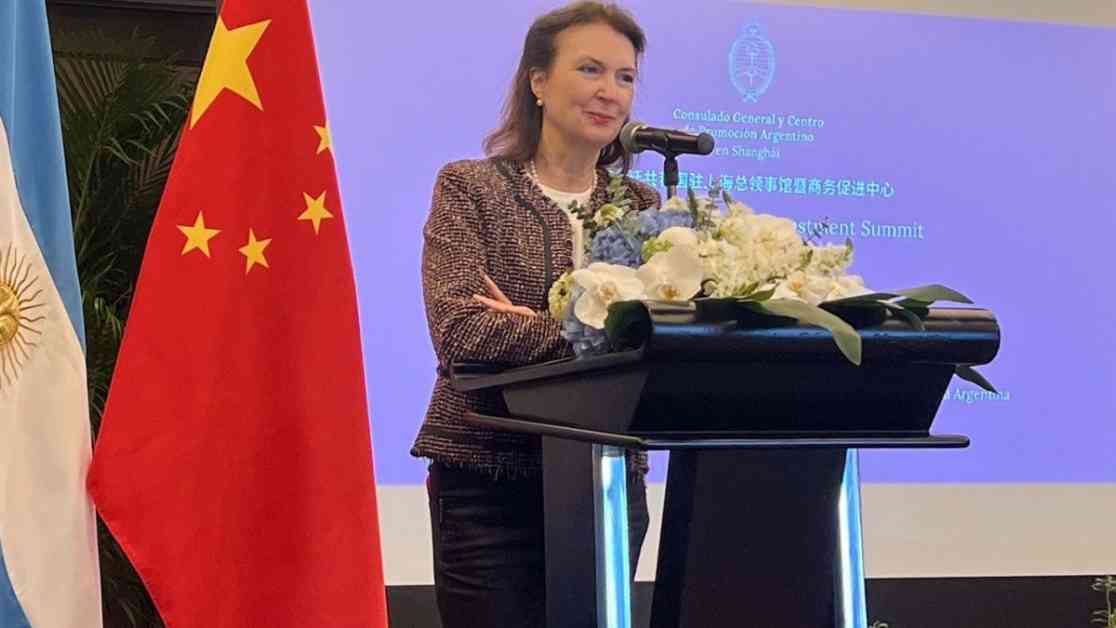The worst face of the shortage of reserves is that not only did the economic team agree to extend the swap through precise work, but also President Milei will travel to China to hold a bilateral meeting with Communist leader Xi Jinping.
Copper loses value due to oversupply and weak demand
Can the record import of beef from China boost exports?
Chancellor Diana Mondino has made demonstrated efforts to sustain the country’s commercial framework with China despite all the presidential rhetoric.
«Not only am I not going to do business with China, I’m not going to do business with any communists» (…) «I am a defender of freedom, peace, and democracy. The Chinese don’t fit there.» These words were uttered by Javier Milei before assuming the presidency in an interview with Tucker Carlson that had resonated around the world. This demonstration of non-alignment was a novelty for Argentina, understood not from a geopolitical but an economic standpoint. These «communist countries» are, among others, the country’s two main trading partners: China and Brazil, as well as the main creditors in terms of international trade balance, with deficits of -9.225 billion dollars and -5.475 billion dollars respectively.
Ceasing to export $17 billion as we do to these two nations due to political ideology would have been one of the worst mistakes in economic terms, especially given the closed nature of global markets in terms of income, mainly raw materials, especially soybeans and wheat. The needs of Argentina’s historical agro-export model require a series of strategic alliances to place more than 20% of exports with actors who have no social-environmental issues and receive those products consistently. In 2023, China received $1.253 billion in soybeans, while another communist country like Vietnam received $1.088 billion in soybeans and just over $800 million in corn exports.
Ignoring China would initially represent an almost immediate payment of $4.9 billion for the swap, a kind of loan from the People’s Bank of China (PBOC), while foreign exchange reserves are scarce to meet the requirements of the import circuit, but also within the monetary flank due to the country facing negative net reserves again, after so much effort and work by the monetary authority. Obviously, one cannot be naive about this matter: while it represents something minuscule in its active policy in the region, Argentina is subsumed in the need and would pay 6.1 points annually to maintain this credit since it is estimated that the country pays 400 basis points above the Shibor rate – the average rate of 18 Chinese banks – for 1 year which is currently at 2.1%.
The worst face of the shortage of reserves is that not only did the economic team agree once again to extend the swap through precise work, but also President Milei will travel to China to hold a bilateral meeting with Communist leader Xi Jinping. Will we see him advocating for democratic elections, the release of enslaved Uighurs, or will we see him closer to cordial treatment? Clearly, the possibility of increasing trade flow, which last year resulted in exports of only $5.270 billion against nearly $14.5 billion in imports, makes us think that we will see him in a conciliatory plan, which is what this complex historical moment demands.
We can even expect the arrival date in the Asian giant to be on July 4, Independence Day in North America, the most important moment in what is called «the free world,» totally contrary to what the communist regime preaches. In this regard, the pragmatism of Chancellor Diana Mondino is key, who has made demonstrated efforts to sustain the country’s commercial framework despite all the presidential rhetoric. The conflict was not only with China: the chancellor had to activate all the arsenal to defuse tension with Colombia, rebuild the fruitful relationship that the current official Daniel Scioli had built in Brazil, and sought to downplay the exchange between our president and Spanish President Pedro Sánchez. All in just 6 months of management. The external scenario is crucial: In 2023, Argentina recorded a deficit in its trade balance of $6.928 billion, 1.1% of its GDP, which represents a significant change since the previous year it recorded a surplus of $6.923 billion, 3.03% of GDP. Much of what can happen in terms of social and structural issues in the country depends on a sustained external surplus. In order to recover that positivity in foreign trade, it is vital for the local macroeconomic health to promote exports and stop thinking about «living with what is ours,» which generates a strong backwardness in various areas, especially in technology, communication, and wages. An inward-looking economy ultimately leads to lower salaries in hard currency – the free dollar – more poverty, permanent problems with the provision of goods and services necessary for productivity, and the extinction of savings. Therefore, I consider it essential to apply pragmatism to move away from public declamations – which I hope will become less frequent – of ideological differences with other leaders and to generate broader, complementary markets to our needs, bringing added value that will ultimately allow us to grow sustainably.












